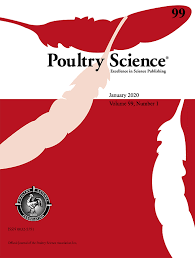Document type: Announcement of a symposium co-organized by theIFCE
Author: IFCE
Date and venue: Wednesday, September 27, 9 a.m. to 6 p.m., Théâtre Italien Bouvet Ladubay, Saumur
Registration linkLink to programme
Preview: Organized by the IFCE's Culture, Heritage and UNESCO Committee, this symposium brings together the views of leading speakers, researchers and practitioners, to provide food for thought and a better understanding of the many ways in which humans and animals live together.
Wednesday, September 27, at the Théâtre Italien Bouvet Ladubay, Saumur.
The place of animals in our society is changing. Horses are part of this new approach which can, when speaking up over genuine animal welfare concerns, sometimes perceive current practices as excessive. How can we combine these ethical issues and societal expectations with the preservation and even enhancement of the various ways that horses are used? How can the values and principles of traditional French horse riding, which promotes a harmonious relationship between horse and rider, inspire or even be expressed through practices that are very different from horseback riding? What does research have to offer to help us better understand the welfare of equines working with humans?
Organised by the IFCE's Culture, Heritage and UNESCO Committee, this thematic group of talks is led by Colonel Patrick TEISSERENC, former chief equerry of the Cadre Noir de Saumur.
The colloquium is chaired by Christophe DEJOURS, specialist in the psychodynamics of work.
Among the topics addressed are:
- Jocelyne PORCHER: Les animaux travaillent-ils ? En quoi les outils des sciences humaines et sociales nous aident à comprendre notre relation avec l’animal ? [Do animals work? How can human and social science tools help us understand our relationship with animals?]
- Vanina DENEUX and Pierre PREAUD: l’évolution du regard sociétal sur les pratiques avec le cheval ? En quoi pèse-t-il sur nos décisions et nos organisations ? [How is society's view of work with horses changing? How does it influence our decisions and organizations?]
- Alice RUET and Sophie BARREAU: que savons-nous des intelligences du cheval et de sa subjectivité ?[What do we know about horse intelligence and subjectivity?]
- Nicolas LAINE: Anthropologie de la vie des hommes avec les éléphants en Inde. [Anthropology of humans living with elephants in India.]
- Maria FERNANDA DE TORRES ALVAREZ: Equitation tauromachique, quelles relations dans le triangle cheval-taureau-gardian ? [Riding in bullfighting, what are. the relationships in the horse-bull-human triangle?]
- Sébastien MOURET : Chiens de sécurité et d’usage : sociologie d’un glissement du dressage vers l’éducation.
- Marine LEBLANC: l’empathie sensorimotrice dans les interactions entre l’homme et le cheval. L’exemple du manège des sauteurs du Cadre noir. [Sensorimotor empathy in human-horse interactions. The example of the Cadre Noir jumpers' arena.]






